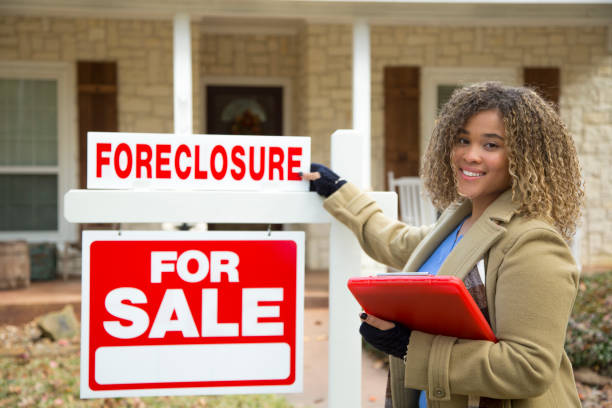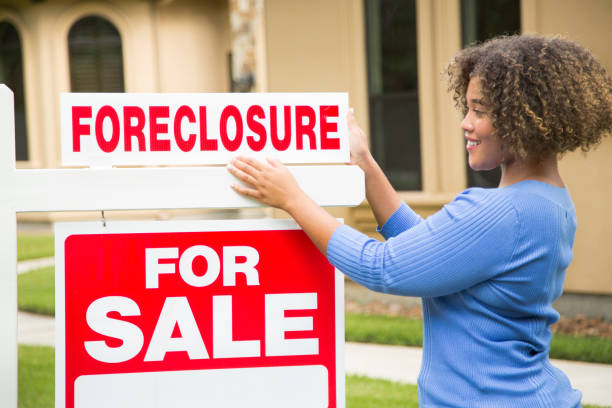
If you’ve ever asked, “How do I find foreclosures in my area?”, you’re already thinking like a smart investor or budget-savvy homebuyer. Foreclosed properties—also known as distressed or REO (real estate owned) homes—can be excellent opportunities to buy below market value. But they’re not always easy to find, especially if you’re new to the game.
That’s why we’ve put together this detailed guide with 7 proven ways to find foreclosures. Whether you’re looking to flip, invest, or buy a home for yourself, these strategies will help you identify the right deals at the right time.
1. Check Local County and City Courthouse Listings
When a homeowner defaults on their mortgage, the lender usually files a foreclosure notice with the local court. These legal documents become part of the public record, making the courthouse one of the most reliable sources of foreclosure data.
Why it works:
You get direct access to fresh foreclosure filings.
You can identify properties before they hit major listing sites.
It’s free or very low cost to access these records.
How to get started:
Visit your county courthouse or county recorder’s office.
Look for Notices of Default (NOD), Lis Pendens, or Trustee Sale Notices.
Use the information to contact owners (for pre-foreclosures) or prepare for upcoming auctions.
Pro Tip: Some counties now offer online access to public foreclosure records, so check their websites before heading down in person.

2. Search Online Real Estate Platforms
If the courthouse feels too old-school, you’ll be glad to know you can answer “How do I find foreclosures?” with just a few clicks. Online real estate platforms are rich in listings—including foreclosures and pre-foreclosures.
Best websites to try:
Zillow – Use filters like “Foreclosure” or “Pre-Foreclosure.”
Realtor.com – A trusted source with frequently updated listings.
Foreclosure.com – A dedicated platform for distressed properties.
Auction.com – Specializes in properties being auctioned.
RealtyTrac – Offers national foreclosure trends and detailed listings.
These platforms often include:
Estimated market value
Auction dates
Property photos
Ownership and tax info
Some of these websites charge a subscription fee for premium access—but for serious investors, it may be worth it.

3. Work with a Real Estate Agent Specializing in Foreclosures
While it’s tempting to go solo, an experienced agent can make your search much easier and help you avoid costly mistakes. Not all real estate agents understand the foreclosure process, so you’ll want someone who specifically handles distressed properties.
Benefits of working with a specialist:
Access to off-market listings or pocket listings.
Knowledge of bank-owned (REO) and short sale procedures.
Assistance with paperwork, negotiations, and closing.
How to find one:
Ask your local real estate office for an agent who handles REOs.
Search LinkedIn or professional groups for foreclosure experts.
Check their past listings for foreclosure sales.
Foreclosure agents also tend to have strong relationships with banks and lenders, which can give you an edge in competitive markets.

4. Browse Government Foreclosure Listings
Foreclosures aren’t just sold by banks. Many are owned by government agencies due to defaulted government-backed loans. These listings are often underutilized, which means less competition and better prices.
Where to look:
HUD Homes (hudhomestore.gov)
Fannie Mae HomePath (homepath.com)
Freddie Mac HomeSteps (homesteps.com)
USDA Foreclosures
VA Foreclosures (for veterans and eligible buyers)
These sites often include:
Property details and photos
Eligibility criteria
Contact information for registered brokers
Government listings are a goldmine for first-time buyers, veterans, and low-to-moderate income families because they often come with financing options and repair incentives.
5. Drive Around Your Neighborhood for Pre-Foreclosure Signs
One of the most overlooked techniques is simply driving around your target neighborhoods. This strategy, known as “driving for dollars,” can reveal hidden foreclosure or pre-foreclosure opportunities not listed online.
What to look for:
Vacant homes with signs of neglect (tall grass, boarded windows)
For Sale by Owner signs
Legal notices posted on doors or windows
Houses that look abandoned or poorly maintained
Once you identify a potential property, use your local county assessor’s office or property appraiser’s website to look up the owner’s name and mailing address. You can then send a letter of interest or contact them directly to see if they’re open to selling.

6. Attend Local Foreclosure Auctions
Another direct way to find foreclosures in your area is by attending local foreclosure auctions. These events can be held in-person at courthouses or conducted online through auction platforms.
Pros:
Deeply discounted properties
Immediate ownership transfer (in some cases)
Great for flipping or buy-and-hold investing
Cons:
Often requires all-cash payments
No access or inspection before purchase
You may inherit liens or unpaid taxes
If you’re new to this, consider attending a few auctions just to observe. Familiarize yourself with the bidding process, registration requirements, and payment deadlines before participating.
7. Network with Real Estate Investors and Wholesalers
Still wondering, “How do I find foreclosures in my area before everyone else?” Your answer may be other investors. Networking with experienced real estate professionals can help you learn about off-market properties and make connections that lead to deals.
How to build your network:
Attend local real estate meetups (REIAs)
Join Facebook groups and forums related to real estate investing
Connect with wholesalers who specialize in distressed properties
Take part in real estate workshops or webinars
Often, wholesalers and investors get early access to foreclosures and need quick buyers to close deals. Being part of these networks can help you act fast when an opportunity arises.

Conclusion: Take Action Toward Your Foreclosure Goals
If you’re serious about investing or buying a home at a bargain, don’t just sit on the sidelines. Apply these seven strategies to confidently answer the question, “How do I find foreclosures in my area?” From courthouse records and online platforms to auctions and networking, there’s no shortage of methods to uncover deals near you.
But you don’t have to do it alone.
If you’re looking for expert advice, tools, and training, Dwanderful is a must-visit. Created by seasoned real estate investor and podcast host Dwan Bent-Twyford, the platform offers educational resources to help you thrive in the world of real estate.
Here’s how you can get started with Dwanderful:
Download the free book Real Estate Lingo to learn the terms that investors use every day.
Check out the premium book, The Five Pillars of Real Estate Investing, which reveals Dwan’s strategy for building long-term wealth through foreclosures and distressed property investing.
Take the quick and fun quiz to discover your personalized path to earning six figures in just six months—whether you’re buying your first home or your next investment property. It takes less than a minute and can change how you approach real estate forever.
Real estate investing isn’t just for the rich or experienced—it’s for anyone willing to learn, take action, and follow proven systems. So start your journey today. Contact us now!
Frequently Asked Questions:
Are foreclosures public records?
Yes. Foreclosures are public records and can be accessed through your local county or city courthouse. They usually include filings like Notices of Default, Lis Pendens, and Trustee Sale Notices. These documents help you identify distressed properties before they hit the market.
Can you look up foreclosures online?
Definitely. Platforms like Zillow, Realtor.com, Auction.com, and Foreclosure.com allow you to look up foreclosure listings by city, zip code, or county. You can often see price estimates, auction dates, and property photos to help make informed decisions.
Can you see if a house is being foreclosed?
Yes, you can. If a house is in pre-foreclosure, it may appear in public records or on online platforms with a notice. Local courthouses also list homes scheduled for auction, and some may even have signs posted on the property itself. You can also contact the local county assessor to verify ownership status and loan defaults.


